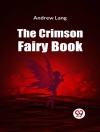In ‘The House of Cobwebs and Other Stories, ‘ George Gissing masterfully weaves a tapestry of human experience, employing a realist style that delves deep into the psyche of his characters. Set against the backdrop of late Victorian England, Gissing explores themes of social class, isolation, and the often-unseen struggles of everyday life. His narratives are marked by a rich, descriptive prose that encapsulates the emotional weight of his characters’ dilemmas, illuminating the complexities of their desires and disappointments. Each story reveals not merely individual struggles but also the broader societal issues of the time, making a poignant commentary on the contradictions of an era poised between tradition and modernity. Gissing, a compelling figure in the literary landscape, drew from his own turbulent life experiences, including poverty and the challenges of the publishing world, which profoundly shaped his worldview. His firsthand encounters with the struggles of the working class provided him with a unique perspective, infusing his writing with authenticity and empathy. Gissing’s commitment to social realism and his philosophical contemplations on life and literature offer readers a profound lens through which to interpret his stories. ‘The House of Cobwebs and Other Stories’ is highly recommended for those who appreciate literature that reflects the intricacies of human nature and social context. Gissing’s ability to evoke sympathy while tackling uncomfortable truths ensures that these narratives resonate with contemporary audiences. For readers seeking a deep exploration of the human condition amidst societal constraints, this collection remains an essential addition to the canon of Victorian literature.
Sobre o autor
George Gissing, an English novelist born on November 22, 1857, in Wakefield, Yorkshire, has been esteemed for his depictions of the lower strata of Victorian society. An alumnus of Owens College (which would later become the University of Manchester), Gissing’s academic excellence was overshadowed by personal travails, leading him into a life of intermittent poverty and underpinning much of his literary output. His first novel, ‘Workers in the Dawn’, hearkened to his societal concerns, but it was Gissing’s later work, like ‘New Grub Street’ and ‘The Odd Women’, that cemented his reputation for unflinching realism and psychological insight. ‘The House of Cobwebs and Other Stories’, a collection of short fiction, showcases Gissing’s talent for nuanced social observation, and his narratives often illuminate the struggles and inner lives of his characters with both empathy and a critical eye. Generally described as a naturalist, Gissing’s prose is admired for its clarity and precision, often drawing comparisons with European authors like Émile Zola. His works provide an invaluable literary window into the lives of the marginalized during a period marked by significant social change. Despite personal setbacks and ill health, Gissing’s portfolio of over twenty novels, numerous short stories, and a range of non-fiction stands testament to his place in the English literary canon. He died on December 28, 1903, but his work continues to be analyzed and appreciated for its historical and literary significance.












